- Home
- Alex Scarrow
Time Riders tr-1 Page 3
Time Riders tr-1 Read online
Page 3
Foster cursed under his breath. ‘With the power off I’ll need to crank theshutter-door open by hand.’
‘Will it take long?’ asked Sal quietly.
‘Not too long.’
‘Good, because I think it’s moving our way.’ She looked at the others.‘Oh my God, can you hear it? It’swhispering!’
Liam cocked his head as he studied the faint bluish blur. He couldn’t hear anything butFoster working the crank handle. ‘No… but you’re right about it coming thisway.’
The manual winch was squealing like it needed oil badly while the metal shutter rattlednoisily in its frame as it inched slowly upwards.
He felt a draught of cool outside air on his legs and saw a crack of pale light at the bottomof the shutter.
‘She’s right, it’s definitely coming closer, Foster,’ said Maddyurgently. ‘Can you do that any faster?’
The shutter clunked and rattled up noisily, the sliver of light coming from outside wideningmuch too slowly.
‘There… that’s enough to duck through,’ he uttered, winded from theexertion.
‘Ladies first,’ offered Liam. He turned to look back over his shoulder, almostinstantly regretting his chivalry. The seeker was making fast progressgliding towards them… almost upon them now, no more than a dozen feet away. Theamorphous cloud of scintillating particles seemed to rear up as it drew across the floor,forming the momentary outline of some kind of face. An angelic, childlike face, a littlegirl… Then the face decayed into some kind of nightmarish creature with empty eyesockets and an elongated jaw.
Liam wondered whether this thing was as spent as Foster hadclaimed, or whether it was still capable of doing harm.
‘Under you go, Liam,’ said Foster, tapping his shoulder, ‘quicklynow.’
Liam dropped down and squeezed under the shutter door, joining the girls outside. Fosteremerged a moment later, and with far less difficulty using the handle outside, worked theshutter down again. It rattled against the ground just as a faint tendril of blue light hadbegun to feel its way out through the gap.
‘It’s weakened enough that it won’t get through,’ he said with asmile.
He took a deep breath, and grinned apologetically. ‘Sorry about that. Now then,’he continued, turning to gesture at the world around them with both hands. ‘Welcome toyour new home.’
Liam turned from the corrugated metal shutter, daubed with messy paint — that he wouldlater find out was called graffiti — to witness a giantsuspended iron bridge right above him, crossing the glistening waters of a wide river towardsa glowing metropolis set against the blood red of an evening sky. He was stunned by a millionlights glowing and buzzing, flickering and changing colour, beautifully reflected in the calmwater in front of them.
‘Oh Jay-zus-’n’-Mary… that’s… that’s… ’His voice faltered at the sight of the futuristic scene.
‘Oh jahulla! I know that,’ utteredSal. ‘It’s New York… At least, how it used to be.’
‘That’s right,’ said Foster. ‘Let’s go get something to eat. Iknow a great burger place just over the bridge.’
CHAPTER 8
2001, New York
Half an hour later the four of them were sitting in a window booth, perched on tallstools around a table and tucking into double cheeseburgers and fries.
Liam’s initial reaction to the plate of food had been one of bemusement. The frieslooked like no potatoes he’d ever encountered before and the burger bun — waxy andbrown — reminded him, oddly, of varnished wood. The savoury smell wafting up, however,soon overcame him and, warily watching the others hungrily tucking in, he followed suit.
As he clumsily manhandled the well-stacked cheeseburger into his mouth, his eyes were on theintersection outside: the pulsing lights of a billboard, the busy throng of pedestrians, carsthat looked as sleek as dew drops, the neon glow from lamp posts and a sky, barely visibleabove the tower blocks, filled with the winking red and green lights of planes criss-crossingthe night sky.
‘It looks so different now,’ said Sal. ‘Justlike Mumbai. My dad brought me here on a business trip once — it was depressing. Theroads empty, and so many buildings, like, dark and empty.’
Foster nodded. ‘The year you come from, Sal — 2026 — New York was already adying city. People moved out, whole neighbourhoods were left deserted and began falling intodecay.’
Maddy finished a mouthful of burger. ‘It doesn’t look that different to me,though.’
‘That’s because right now we’re in 2001, only a few yearsbefore your time, 2010,’ Foster replied. ‘The global economic crash had onlyreally just started.’
Liam turned from the window to look wide-eyed at Foster. ‘I can’t believe this isalmost a hundred years in my future!’
‘For you, Liam, yes. For Maddy it’s just nine years ago, for Sal…it’s eleven years before she was even born.’ He sipped a mouthful of cold, frothybeer from a tall glass. ‘This is where you, as a team, will be stationed. The archwayunder the bridge is your base of operations: your fieldoffice.’
Maddy looked at him. ‘Are there other field offices?’
He wiped his mouth and nodded. ‘But you’ll never meet them or communicate withthem.’
‘Why not?’
He picked at the fries on his plate. ‘It’s just the way it is.’
Sal chugged a mouthful of Dr Pepper. ‘I still don’t get why we’re here.What exactly you want us for.’
‘You are police… sort of,’ Foster replied.‘Here to police time. To stop trespassers from the futurechanging things in the past. The agency is top secret. It really isn’t supposed toexist, so we don’t have a proper job title. But inside the agency, we call ourselvesTimeRiders.’
‘TimeRiders?’
Foster hunched forward and stroked his chin thoughtfully.
‘Look… think of time as a river. A river that always flows downhill. Well, we canride up it or down it. Ride time. Timeride. Just like being in a river boat with a paddle, wecan go against the flow. And your job will be looking for other people on the river goingagainst the flow when they have no business to. You’ll look for them, find them,terminate them and tidy up whatever damage they’ve done.’
‘How’re we going to do that?’ asked Maddy.
‘Well, I’ll be training you, of course.’ Foster smiledtiredly. ‘As quickly as I can. We need this field office to be operational again as soonas is possible.’
Sal looked up from her food. ‘The team before us… what were they like?’
Foster’s smile faded. ‘A little like you once, I suppose.’ The old manlooked away guiltily to gaze out of the window. He chewed on his lips for a moment.‘Young, inexperienced and frightened at first… and, ultimately, veryunlucky.’
‘That thing really killed them?’
He nodded. ‘Seekers are rare. And normally we do a density scan before pulling someoneback from a mission. That last time we didn’t and…’ Foster’s wordsfaded into an uncomfortable silence.
‘So,’ Liam cut in, ‘when do we start this training youmentioned?’
Foster turned to them.
‘Now.’
He sipped his beer again, took a deep breath. ‘I think we should start with a littlebit of a history lesson — the history of time travel.’
CHAPTER 9
2066, New York
Dr Paul Kramer looked out at the dark streets of the city, the boarded-upbuildings, the discarded vehicles left rusting down the backstreets. Every so often theircoach passed a pedestrian, a small scruffy corner shop, a light glowing through a grimywindow.
New York was a rundown relic of the thriving city it had once been. There were whole blocksthat were now little more than deserted shells, populated by feral packs of dogs andpigeons.
The coach was heading down Central Park West, off Broadway. Kramer had seen films made sixtyyears ago that showed these streets full of life and colour and hope. Now it was a dismal andgrey place, a city dying piece by piece, block by block.
The coach slowed down as it passed a police precinct building, the windows protected by metalgrilles.
‘No need to drive too cautiously, Karl,’ said Kramer. ‘You’ll makethe police suspicious.’
Karl Haas, driving, picked up the speed a little.
Kramer twisted in his seat and looked back down the coach. His men, two dozen of them, satquietly in their seats, lost in thought, pensive. All of them fighting fit, wearing combatfatigues, ready for their mission. The aisle between both rows of seats wasclogged with their kit: crates and canvas carry-bags full of weapons.
He smiled proudly.
Good men, aren’t they, Paul?
‘We’re nearly there,’ he said to Karl.
Karl nodded and then barked out to the men behind them: ‘Make ready!’
They stirred immediately and he could hear the rattle of firearms being racked and readied touse. They were all experienced, many of them ex-military… all of them firmly committedto Kramer’s plan. None of them married or leaving children behind.
A one-way trip away from this dying world clogged with nine billion people — most ofthem starving. What Kramer was offering these young men was hope,a chance to change things for the better.
In the thigh pocket of Kramer’s combat pants was the one little thing that was going tomake that possible for them: a black notebook.
Karl turned a corner on to 79th Street. The intersection was busier than normal with a fewpedestrians hunched over and miserable, shuffling their way home. Ahead of them was the grandbuilding itself — the American Museum of Natural History. Like so many others, it wasboarded up, covered in pigeon droppings and mostly dark, waiting in vain for better days.
Kramer felt his heart sink at the sight of its once-proud entrance now darkened with urbangrime and defaced with graffiti. This once-great nation deserved better; this city deservedbetter. The museum was a pitiful reminder of a grand time when Manhattan really was the centreof the world.
He could cry, honestly… he really could.
CHAPTER 10
2001, New York
‘It began with theory: a paper written in 2029 by a talented Chinesemathematics graduate called Edward Chan,’ said Foster. ‘According to him, on paperat least, it was possible to bend space and time in such a way as to create a hole. But it took another fifteen years, and someone else, toconstruct a prototype that sort of worked. The man’s name was Roald Waldstein, a quitebrilliant amateur physicist.
‘There were all manner of huge corporations and military research teams working day andnight to be the ones to make the first time machine. But it was Waldstein, working in littlemore than a garage, who managed to overcome the practical difficulties of turning the theoryinto a functioning device. It was Waldstein, one man on his own, who beat corporations andgovernments to the prize.’
Maddy laughed. ‘The billionaires of tomorrow always seem to start out in garages,don’t they?’
Foster shook his head, eager to continue. ‘The story goes that he tested his ownmachine, went back to somewhere in the past. However, he returned acompletely changed man.’
‘Why?’
‘He claimed he saw something on his trip that scaredhim.’
‘What?’
‘Waldstein never told anyone what he saw. But whatever it was itconvinced him that his work on developing a working time machine was dangerous. He becameobsessed with preventing any further work on time travel. Over the years, Roald Waldsteinbecame rich from other inventions, became an influential voice and campaigned very publicly toensure this technology died.’
Maddy slurped her Dr Pepper. ‘And obviously it wasn’t halted.’
‘Obviously.’
‘So what happened?’ asked Liam.
CHAPTER 11
2066, New York
Karl parked the coach outside the rear of the museum where the loading bay andtrade entrances were. The men clambered off silently, efficiently, weapons slung over theirshoulders, crates and kit bags carried between them.
Kramer helped one of his men with a canvas sack full of ammo clips. It was heavy enough toensure his arms were aching by the time they carefully placed it on the ramp leading up to themuseum’s shuttered loading bay.
He looked around quickly.
The cover of night and sparse lighting from a sputtering arc light almost certainly meant noone had spotted them yet.
Yet.
Soon enough, though, there’d be armed police descending upon them.
Karl, a lean and muscular ex-marine in his thirties, approached him. Once upon a timehe’d been Technical Sergeant Karl Haas — that wasbefore the army spat him out, surplus to requirements. Karl was Kramer’ssecond-in-command. While Dr Paul Kramer might be the brains — the visionary — it was Karl to whom the men would turn once the fightingstarted.
‘Dr Kramer, sir?’
‘Yes, Karl.’
‘You’re absolutely certain it’s here?’
He couldn’t blame the man for asking. Once they broke into the museum,and sealed themselves inside, there wasn’t going to be any turning back.
Kramer patted his shoulder. ‘It’s here, my friend. Trust me.’
They worked the loading-bay door open with a sledgehammer, smashing the locking bar andpushing the heavy aluminium doors in. Almost immediately a bell began to ring somewhere insidethe dark cavernous building.
‘It’s OK,’ said Kramer, ‘there are only a few security guardsinside.’ He looked over his shoulder at the night sky and the distant glow of a policehoverjet sluggishly patrolling the dead skyline of Manhattan. ‘The police, on the otherhand, will be with us soon, I’m sure. We should get everything inside as quickly aspossible.’
Karl nodded. ‘Yes, sir,’ he said, and turned smartly away.
He helped drag in the crates and bags of equipment. Once everything was inside, they pushedthe loading-bay doors closed. The area, stacked with wooden packing crates, flickered to lifein the dazzling, strobing light of a welding torch sealing the service door shut.
‘Make sure that’s properly secured,’ ordered Kramer. He turned to Haas.‘Karl, take a dozen men and round up the security staff. Bring them to me.’
The man nodded and headed towards the doors to the museum’s galleries, quickly pickingsome men to go with him.
Kramer felt the item in his pocket: his small notebook. He silently prayed that hewasn’t making a horrendous mistake.
You know it’s hidden here, Paul.
So many reasons why he could be wrong. Maybe it wasn’t down in the basement of themuseum, but instead in some other building… Maybe the code was copied downincorrectly… Maybe he really did destroy it…
Have faith in your instincts, Paul.
If he’d got it wrong, though, they were going to be nothing more than a couple of dozenangry idealists trapped in a dusty old building full of priceless museum exhibits boxed awayin the hope of better times.
He guessed the armed police might be wary of using heavy-calibre or incendiary weapons forfear of damaging the nation’s irreplaceable heirlooms. But they’d be coming in,one way or another, and there’d be gunfire.
They’ll shoot first and worry about the chipped potterylater.
CHAPTER 12
2001, New York
‘Waldstein destroyed his machine. He smashed it up, as well as burning allhis notes and files. Fifteen years of hard work… destroyed because he suspected timetravel would ultimately harm this world.’
‘Wow,’ gasped Maddy. ‘That’s a bit over the top, isn’t it?It’s like deleting all the code for a game just to kill one bug.’
Sal looked up from her food, so far barely touched. ‘So, why did he want to make a timemachine in the first place?’
‘His wife and son died in 2028. He made no secret of what was driving him to go back intime.’
‘To save them?’
‘No, to see them one last time, to say goodbye to them.Waldstein knew he couldn’t save them — he couldn’t alter histor
y — but he could at least tell them he loved them both momentsbefore their lives were to end.’
Liam shook his head slowly. ‘That’s a tough one, so it is. To have the chance tosave those you love, yet not do it because that’s the right thing to do.’
Foster nodded. ‘Yes. Waldstein was a very principled man.’
‘Did he manage to see them when he went back?’ asked Sal.
‘No one knows if he was successful. He never spoke about it. He returned, as Imentioned, a very changed man, immediately afterwards destroying all his work. He began acampaign for all research in time technology to be halted. His desperatewarnings that the world could be destroyed by time travel began to find an audience and inearly 2051 an international law was passed strictly forbidding the development of thetechnology. Waldstein became a recluse after that, rarely seen in public, but content that hiscampaign had put an end to time travel.’
Foster sighed. ‘But, of course, it didn’t.’
He finished his beer. ‘It was obvious that every major corporation, every country,every tin-pot dictator, anybody with the money, the resources andmanpower, was secretly working on their own time machine.Waldstein had shown it was possible and that was enough.
‘So, in direct violation of the international law, this agency was set up. Quietly,secretly, working on their very own machines.’
‘Let me guess,’ interrupted Maddy, ‘to go back in time to killWaldstein?’
Foster shook his head. ‘No. Just as Waldstein couldn’t save his family, so theagency can’t go back in time to prevent him from making his machine. History cannot be violated, it cannot be changed — that’s thetidal wave I mentioned a while back, remember?’
They nodded.
‘You see, time can cope with very small changes. History can sort of heal itself of very, very minor alterations, because there’s amomentum to events, a momentum to history. It’s as if history wants to go a certain route. But,’ said Foster with a cautionary glance up atthem, ‘but, a more significant change, for example going back in time and talkingWaldstein out of building his machine, or even killing him… well, something like thatwould be enough of a change to cause a tidal wave.’

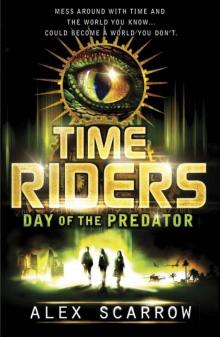 Day of the Predator
Day of the Predator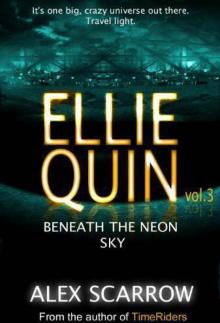 Ellie Quin Book 3: Beneath the Neon Sky
Ellie Quin Book 3: Beneath the Neon Sky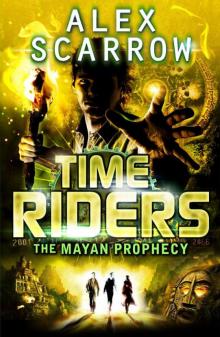 The Mayan Prophecy
The Mayan Prophecy October Skies
October Skies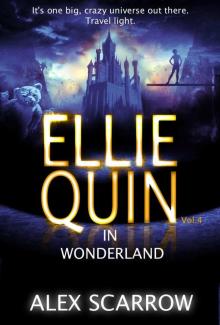 Ellie Quin Episode 4: Ellie Quin in WonderLand (The Ellie Quin Series)
Ellie Quin Episode 4: Ellie Quin in WonderLand (The Ellie Quin Series)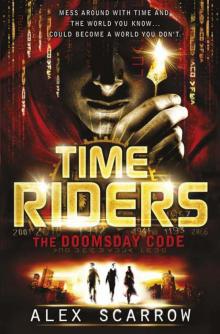 Time Riders
Time Riders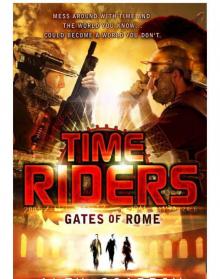 Gates of Rome
Gates of Rome Reborn
Reborn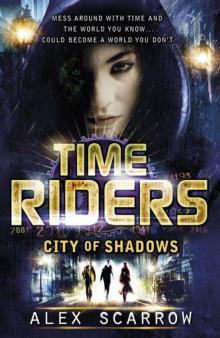 City of Shadows
City of Shadows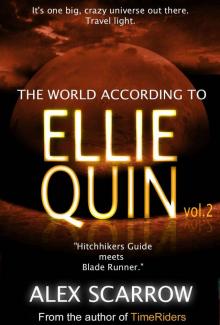 Ellie Quin Book 2: The World According to Ellie Quin (The Ellie Quin Series)
Ellie Quin Book 2: The World According to Ellie Quin (The Ellie Quin Series)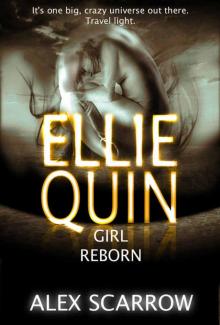 Ellie Quin Episode 5: A Girl Reborn
Ellie Quin Episode 5: A Girl Reborn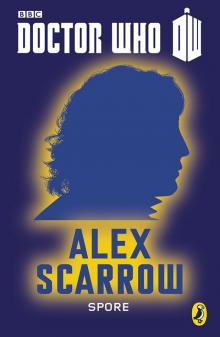 Spore
Spore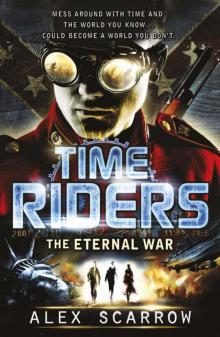 The Eternal War
The Eternal War Last Light
Last Light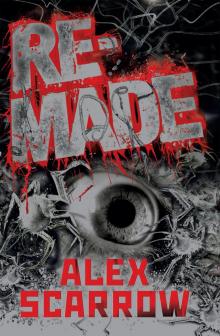 Remade
Remade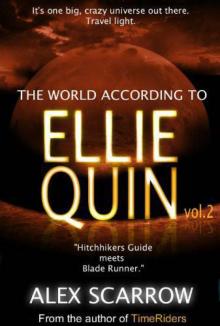 Ellie Quin Book 2: The World According to Ellie Quin
Ellie Quin Book 2: The World According to Ellie Quin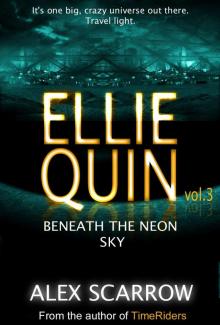 Ellie Quin Book 3: Beneath the Neon Sky (The Ellie Quin Series)
Ellie Quin Book 3: Beneath the Neon Sky (The Ellie Quin Series)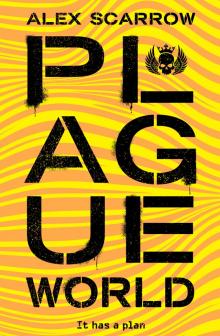 Plague World
Plague World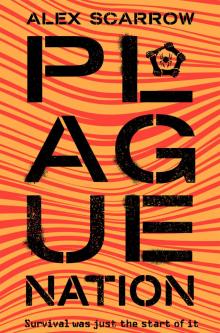 Plague Nation
Plague Nation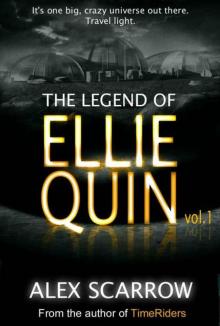 Ellie Quin Book 01: The Legend of Ellie Quin
Ellie Quin Book 01: The Legend of Ellie Quin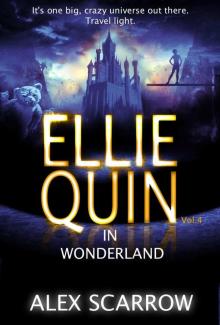 Ellie Quin - 04 - Ellie Quin in WonderLand
Ellie Quin - 04 - Ellie Quin in WonderLand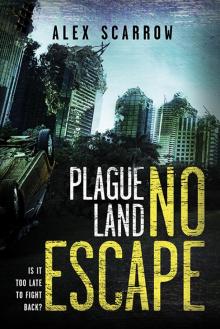 No Escape
No Escape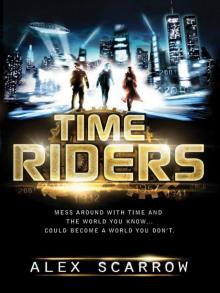 TimeRiders
TimeRiders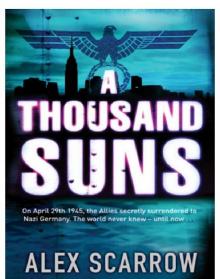 A Thousand Suns
A Thousand Suns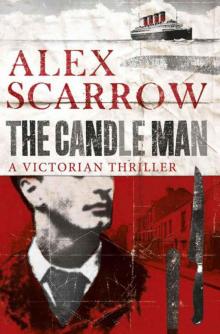 The Candle Man
The Candle Man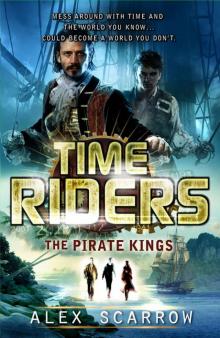 The Pirate Kings
The Pirate Kings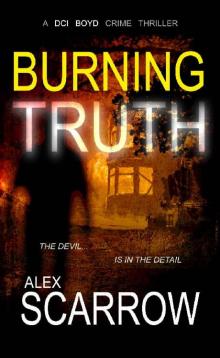 Burning Truth: An Edge-0f-The-Seat British Crime Thriller (DCI BOYD CRIME THRILLERS Book3) (DCI BOYD CRIME SERIES)
Burning Truth: An Edge-0f-The-Seat British Crime Thriller (DCI BOYD CRIME THRILLERS Book3) (DCI BOYD CRIME SERIES)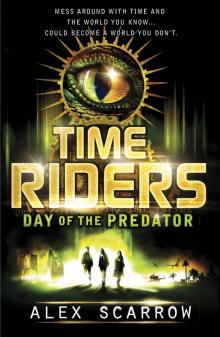 Day of the Predator tr-2
Day of the Predator tr-2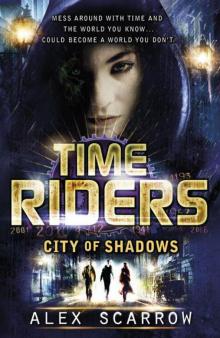 City of Shadows tr-6
City of Shadows tr-6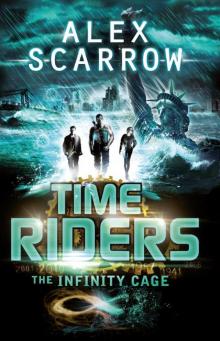 TimeRiders: The Infinity Cage (book 9)
TimeRiders: The Infinity Cage (book 9)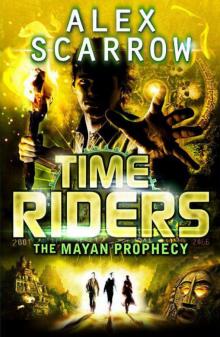 The mayan prophecy (Timeriders # 8)
The mayan prophecy (Timeriders # 8)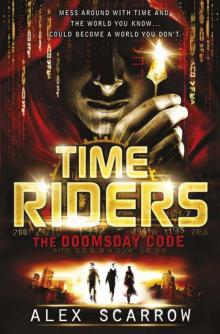 TimeRiders: The Doomsday Code (Book 3)
TimeRiders: The Doomsday Code (Book 3)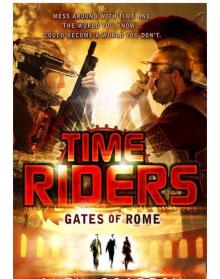 Gates of Rome tr-5
Gates of Rome tr-5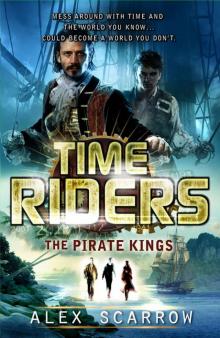 TimeRiders: The Pirate Kings (Book 7)
TimeRiders: The Pirate Kings (Book 7)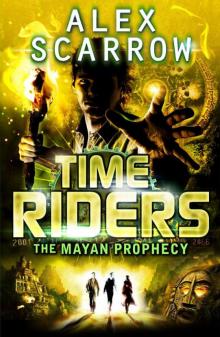 TimeRiders: The Mayan Prophecy (Book 8)
TimeRiders: The Mayan Prophecy (Book 8)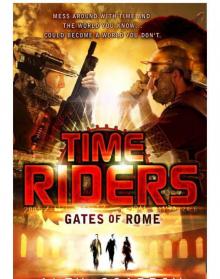 TimeRiders 05 - Gates of Rome
TimeRiders 05 - Gates of Rome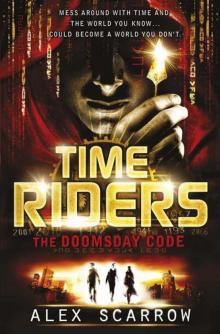 The Doomsday Code tr-3
The Doomsday Code tr-3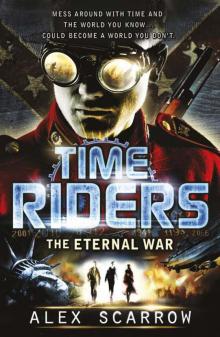 The Eternal War tr-4
The Eternal War tr-4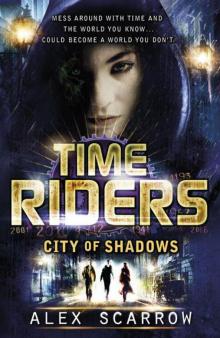 TimeRiders: City of Shadows (Book 6)
TimeRiders: City of Shadows (Book 6)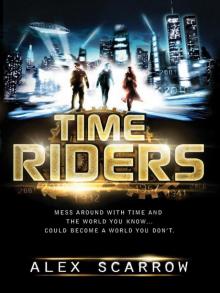 Time Riders tr-1
Time Riders tr-1 Afterlight
Afterlight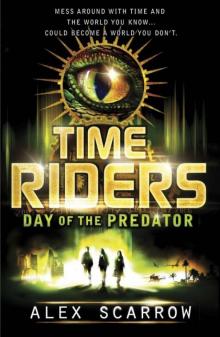 TimeRiders, Day of the Predator
TimeRiders, Day of the Predator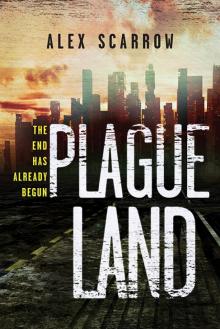 Plague Land Series, Book 1
Plague Land Series, Book 1